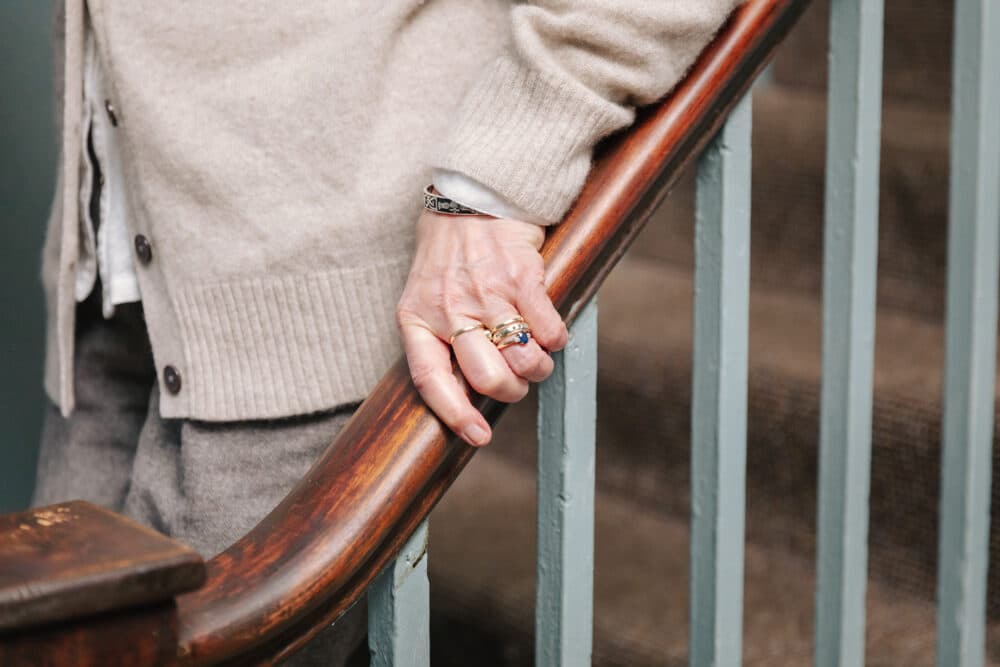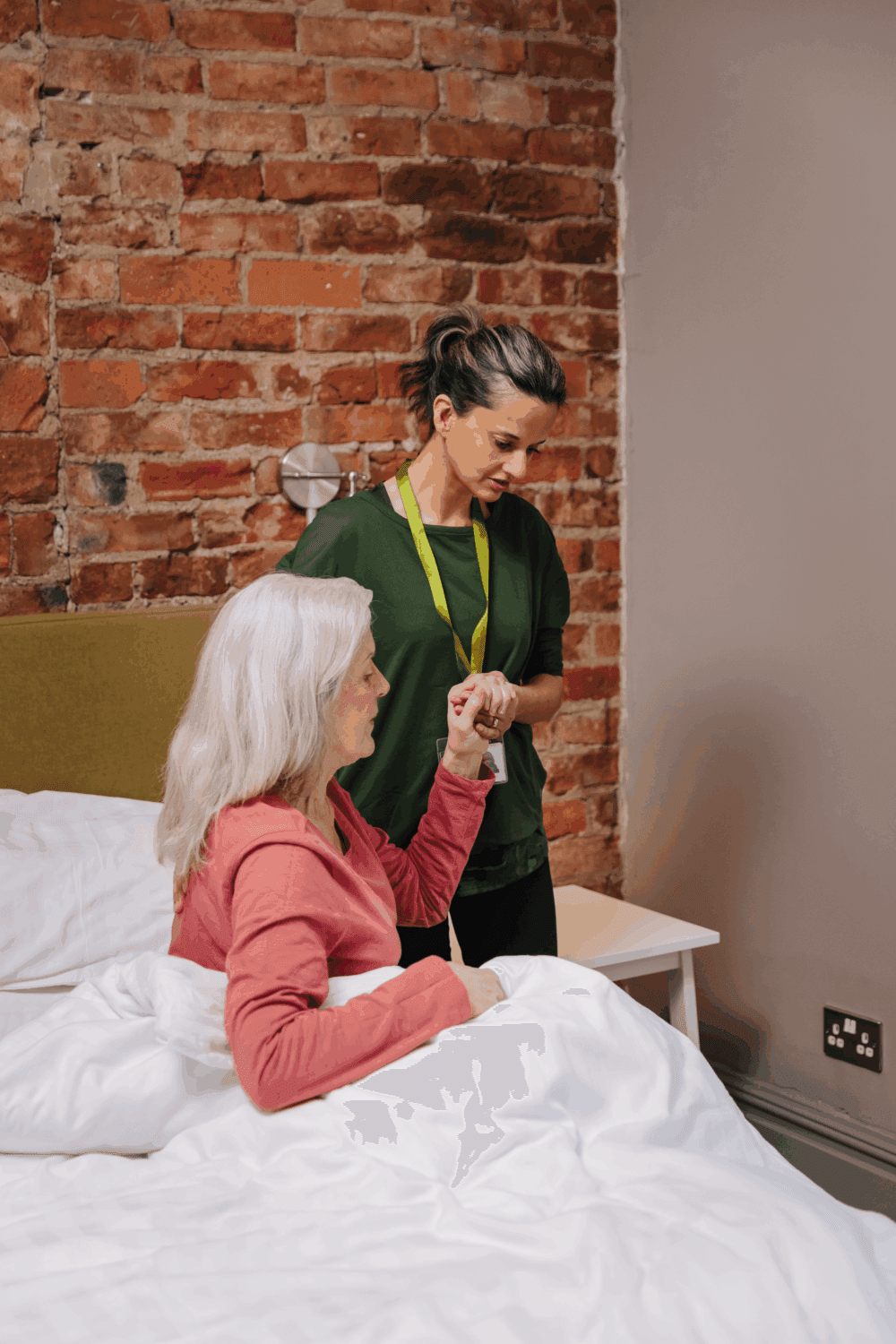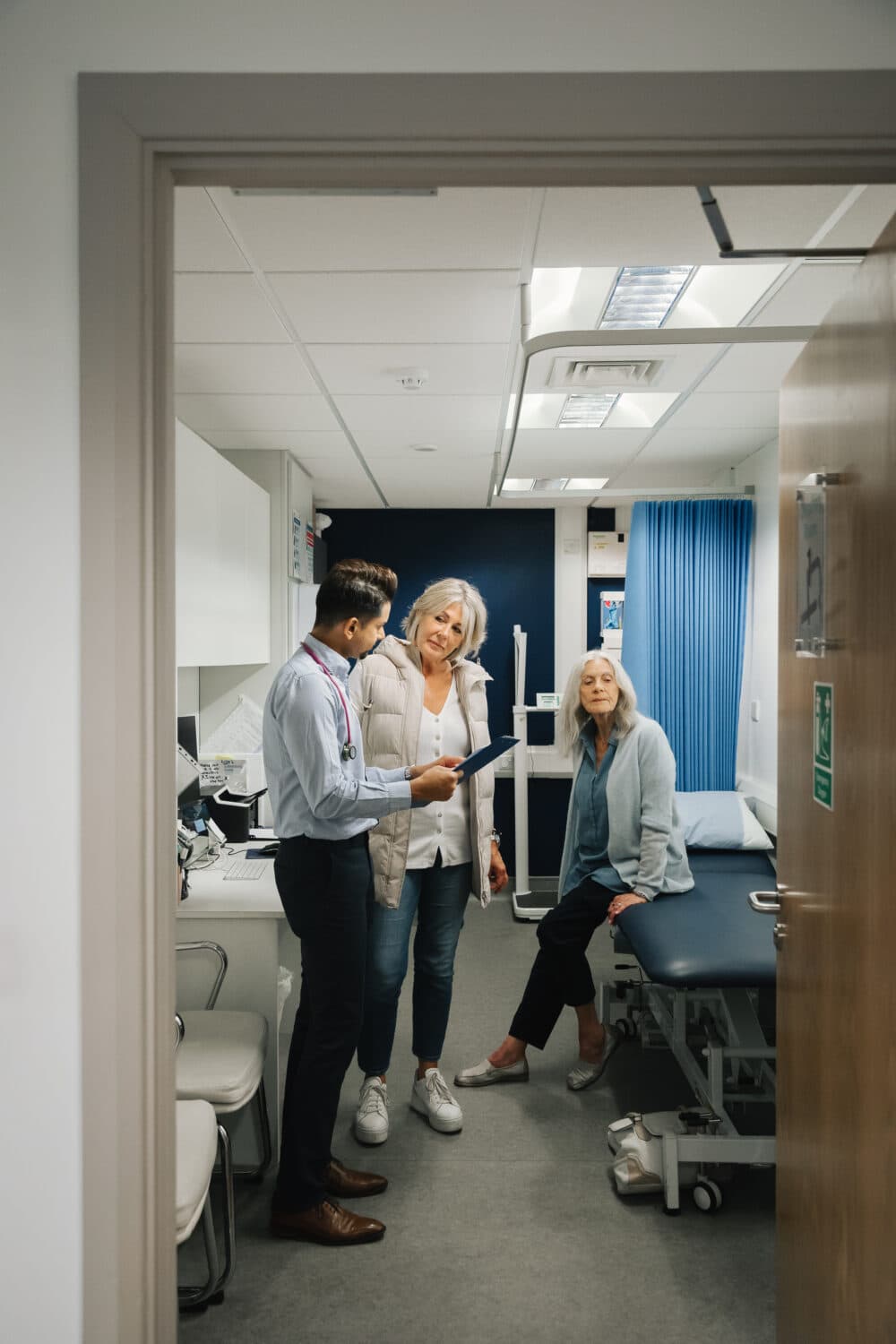What causes sudden extreme fatigue in older adults?

Possible causes of sudden extreme fatigue in older adults
If you or someone you are caring for is experiencing bouts of sudden, extreme fatigue, you will understandably be wondering what the cause may be. Fatigue is common in older adults, but when it becomes extreme or debilitating, it should be addressed quickly.
Here, we will be determining what sudden, extreme fatigue might feel like as opposed to general tiredness, why this is a concern for older adults, how a doctor might diagnose the underlying cause, how extreme fatigue is treated, and how home care could help manage fatigue symptoms.
At Home Instead, our aim is to help people age positively and in place by bringing expert care to their home. For nearly 20 years, we have been providing the highest standard of care, and creating industry-leading training programmes for our Care Professionals that are accredited by nursing and medical professionals. Today, we are the world’s largest global domiciliary care network, supporting over 100,000 older adults with personalised, tailored care at home. So whatever questions you have about fatigue in older adults, we can help.
How common is fatigue in older adults?
Fatigue is very common as people age, but understanding the difference between tiredness, general fatigue, and extreme fatigue is important. One study found that of the general population, fatigue lasting less than 6 months occurred in 20.4% of adults, while chronic fatigue (categorised as lasting more than 6 months) affected 10.1% of adults.
Fatigue is known to be particularly common in older adults, and a study from 2010 on subjects aged 70, 78 and 85 found the prevalence of fatigue to be 29%, 53% and 68% respectively, suggesting general fatigue tends to become more common with age.
In older adults, fatigue can have negative impacts on their quality of life, so addressing the problem in this population is important – if you suffer from fatigue, you do not need to accept this as a part of growing older. Speak to medical or psychological professionals about how this is affecting your life, and find out what lifestyle interventions could help.

What counts as sudden and extreme fatigue?
While general fatigue can still feel overwhelming at times, feelings of fatigue that arise quickly without warning, and are so extreme that they impact daily activities, could be caused by an underlying issue.
Identifying and addressing sudden, extreme fatigue is not always easy, as everyone has a different threshold for exhaustion. If you notice an abrupt onset of overwhelming tiredness that significantly impairs your daily functioning, or you notice this in a loved one you are caring for, this could be abnormal levels of fatigue and may need to be checked by a doctor.
Unlike regular tiredness, this type of fatigue can appear without prior warning and will not be alleviated by resting. You may also experience other symptoms such as shortness of breath or chest pains, which could indicate a serious underlying condition like heart disease – if you suspect any of these based on the symptoms you are experiencing, you should seek medical assistance as soon as possible.
Why is sudden, extreme fatigue worrying for older adults?
Sudden, extreme fatigue can be concerning in older adults as it often signals a more serious underlying health issue requiring attention. In many cases extreme fatigue like this that happens without any lifestyle changes (such as getting less sleep) can be a symptom of certain conditions affecting the heart.
Fatigue of this nature could impair an older adult’s ability to move around safely, which can increase their risk of falls or injuries. One study identified that increased energy and reductions in fatigue could lessen the burden of falls in older men, so recognising and addressing this symptom as soon as possible – whether for yourself or someone you are caring for – could be vital for maintaining health and mobility, as well as potentially preserving life if something more serious is underlying.
What conditions could cause extreme fatigue?
While factors such as sleep issues, depression, a poor diet, dehydration, or too much/too little physical activity can cause older adults to experience general fatigue, more often than not, sudden and extreme fatigue is the result of an underlying medical condition.
A number of conditions could cause this type of fatigue, however the ones most commonly associated include:
- Heart conditions – Myocardial ischemia can cause a heart attack or other serious heart issues, which can lead to abrupt feelings of fatigue due to reduced blood flow.
- Infections – Older people are often more susceptible to infections, and infections such as pneumonia can lead to extreme fatigue while the immune system attempts to fight off any illness.
- Severe anaemia – Anaemia may result from nutritional issues, but other conditions can cause severe forms of anaemia, leading to potentially extreme fatigue.
- Hormone disorders – Certain hormone-related conditions could cause extreme fatigue to arise suddenly, such as hormonal imbalances and thyroid disorders, which disrupt metabolism.
- Diabetes – Diabetes can cause intense feelings of fatigue for some people as a result of too high or too low blood glucose levels.
- A stroke or TIA – Strokes or TIAs (transient ischemic attacks) can manifest as extreme fatigue, but can also be a symptom that continues throughout recovery.
- Neurological issues – Conditions such as Multiple Sclerosis or Parkinson’s can cause feelings of fatigue to appear suddenly.
Side effects of certain medications can also cause fatigue. Medications are taken more regularly by older adults because they tend to have more health conditions than other age groups, so when a person is taking one or more medications, they could experience side effects such as fatigue. In addition, side effects of other treatments – such as chemotherapy or radiotherapy – could have similar effects.
Remember, if your fatigue feels extreme but does not come on suddenly, this is still a reason to visit your GP and check for other issues. The NHS recommends seeking help if you have extreme fatigue for at least 3 months that makes it difficult to carry out daily activities or causes problems with thinking, memory or concentration. This could be chronic fatigue syndrome (CFS), otherwise known as myalgic encephalomyelitis (ME), which is a condition lasting 6 months or longer and causing fatigue independently of other conditions.

How are these conditions diagnosed?
A doctor diagnosing the underlying cause of extreme, sudden fatigue in an older patient would likely consider some of the above serious conditions, such as cardiovascular issues, infections or severe anaemia, in order to hopefully rule these out.
They would likely begin by asking some questions to find out more, such as:
- Do you have any other symptoms?
- How well do you sleep?
- How is your mood?
- Has your weight changed?
- Do you consume any alcohol or take any substances?
- What medication are you on (if any)?
- How long ago did the sudden, extreme fatigue start?
A doctor may also take a thorough medical history, do a physical examination, and perform any appropriate diagnostic tests to determine the underlying cause and initiate treatment. Aside from cardiology tests for suspected heart attacks or other heart-related emergencies, some of the diagnostic tests performed for extreme fatigue might include:
- Blood tests
- Thyroid hormone tests
- Renal function tests
- Liver function tests
- Blood glucose levels
- Tests on inflammatory markers
- Neurological tests
When should someone see a doctor for fatigue?
In general, if an older person has been experiencing low energy for several weeks, or their fatigue keeps getting worse, it is important to involve a GP. Extreme fatigue means there is most likely an underlying condition that needs to be checked, so if you are caring for a loved one suffering fatigue, help them book an appointment with their doctor as soon as possible to explore what this might be – let them know about the symptoms when you book so they know to see you promptly.
If an older person is experiencing bouts of sudden, extreme fatigue or you notice other symptoms alongside their fatigue, this could be a sign of something more serious such as a heart condition, stroke, or a severe infection. This should be considered an emergency, so visit a hospital or call an ambulance if you believe this could be the case for the person in your care.
How is extreme fatigue treated?
The treatment for extreme fatigue depends on the underlying condition thought to be causing it. For example, if an older person’s fatigue is due to something serious, like cardiovascular issues (heart disease, heart failure, etc.) then they may be required to take medications, make immediate lifestyle changes, or even undergo surgery. Or, if an infection is thought to be the cause, they may be given antibiotics or antiviral medications to treat the root cause.
Doctors will usually aim to treat the underlying reason for extreme fatigue in order to tackle this symptom, and may also recommend various lifestyle changes to improve the person’s overall health. These could be things like getting adequate sleep, eating a more nutritious diet, managing stress levels, engaging in a regular exercise routine (appropriate for the patient’s age and ability), addressing any mental health concerns, and more.
How can home care help older adults who suffer from fatigue?
Home care can support older adults who suffer from any kind of fatigue by providing personalised assistance. This could include things like encouraging movement if recommended by a doctor, ensuring the person sticks to medication schedules, encouraging the person to get enough sleep, preparing nutritious meals, and more. You can read more in our guide to what home care is.
Many older adults who suffer with extreme fatigue may not be able to leave home and socialise, so a carer could also offer emotional support and companionship to those who feel isolated and lonely.
If there is an underlying health condition causing fatigue, a carer can also help by monitoring for any worsening symptoms or signs of deterioration, and facilitate a timely medical intervention to ensure the older person remains healthy, safe and comfortable living at home.
If fatigue is negatively impacting you or your loved one, feel free to reach out to your local Home Instead office to discuss how we could help. Our Care Professionals are highly trained to deliver the services you need, so no matter what type of home care you are looking for, we can provide a tailored service that suits you or your loved one.
We’re an award-winning home care provider and part of a worldwide organisation devoted to providing the highest-quality relationship-led care for older people in their own homes. Arranging care for yourself or your loved one shouldn’t be stressful, so whatever questions you would like answered, feel free to reach out to the Home Instead team to discuss your needs.